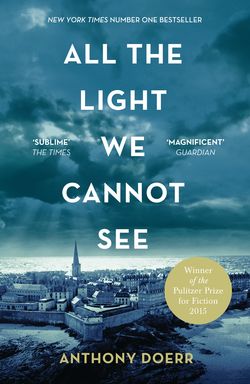Читать книгу All the Light We Cannot See - Anthony Doerr, Anthony Doerr - Страница 35
Bye-bye, Blind Girl
ОглавлениеThe war drops its question mark. Memos are distributed. The collections must be protected. A small cadre of couriers has begun moving things to country estates. Locks and keys are in greater demand than ever. Marie-Laure’s father works until midnight, until one. Every crate must be padlocked, every transport manifest kept in a secure place. Armored trucks rumble at the loading docks. There are fossils to be safeguarded, ancient manuscripts; there are pearls, gold nuggets, a sapphire as big as a mouse. There might be, thinks Marie-Laure, the Sea of Flames.
From a certain angle, the spring seems so calm: warm, tender, each night redolent and composed. And yet everything radiates tension, as if the city has been built upon the skin of a balloon and someone is inflating it toward the breaking point.
Bees work the blooming aisles of the Jardin des Plantes. The plane trees drop their seeds and huge drifts of fluff gather on the walkways.
If they attack, why would they attack, they would be crazy to attack.
To retreat is to save lives.
Deliveries stop. Sandbags appear around the museum gates. A pair of soldiers on the roof of the Gallery of Paleontology peer over the gardens with binoculars. But the huge bowl of the sky remains untracked: no zeppelins, no bombers, no superhuman paratroopers, just the last songbirds returning from their winter homes, and the quicksilver winds of spring transmuting into the heavier, greener breezes of summer.
Rumor, light, air. That May seems more beautiful than any Marie-Laure can remember. On the morning of her twelfth birthday, there is no puzzle box in place of the sugar bowl when she wakes; her father is too busy. But there is a book: the second Braille volume of Twenty Thousand Leagues Under the Sea, as thick as a sofa cushion.
A thrill rides all the way into the nails of her fingers. “How—?”
“You’re welcome, Marie.”
The walls of their flat tremble with the dragging of furniture, the packing of trunks, the nailing shut of windows. They walk to the museum, and her father remarks distractedly to the warder who meets them at the door, “They say we are holding the river.”
Marie-Laure sits on the floor of the key pound and opens her book. When part one left off, Professor Aronnax had traveled only six thousand leagues. So many left to go. But something strange happens: the words do not connect. She reads, During the entire day, a formidable school of sharks followed the ship, but the logic that is supposed to link each word to the next fails her.
Someone says, “Has the director left?”
Someone else says, “Before the end of the week.”
Her father’s clothes smell of straw; his fingers reek of oil. Work, more work, then a few hours of exhausted sleep before returning to the museum at dawn. Trucks carry off skeletons and meteorites and octopi in jars and herbarium sheets and Egyptian gold and South African ivory and Permian fossils.
On the first of June, airplanes fly over the city, extremely high, crawling through the stratus clouds. When the wind is down and nobody is running an engine nearby, Marie-Laure can stand outside the Gallery of Zoology and hear them: a mile-high purr. The following day, the radio stations begin disappearing. The warders in the guards’ station whack the side of their wireless and tilt it this way and that, but only static comes out of its speaker. As if each relay antenna were a candle flame and a pair of fingers came along and pinched it out.
Those last nights in Paris, walking home with her father at midnight, the huge book clasped against her chest, Marie-Laure thinks she can sense a shiver beneath the air, in the pauses between the chirring of the insects, like the spider cracks of ice when too much weight is set upon it. As if all this time the city has been no more than a scale model built by her father and the shadow of a great hand has fallen over it.
Didn’t she presume she would live with her father in Paris for the rest of her life? That she would always sit with Dr. Geffard in the afternoons? That every year, on her birthday, her father would present her with another puzzle and another novel, and she would read all of Jules Verne and all of Dumas and maybe even Balzac and Proust? That her father would always hum as he fashioned little buildings in the evenings, and she would always know how many paces from the front door to the bakery (forty) and how many more to the brasserie (thirty-two), and there would always be sugar to spoon into her coffee when she woke?
Bonjour, bonjour.
Potatoes at six o’clock, Marie. Mushrooms at three.
Now? What will happen now?
